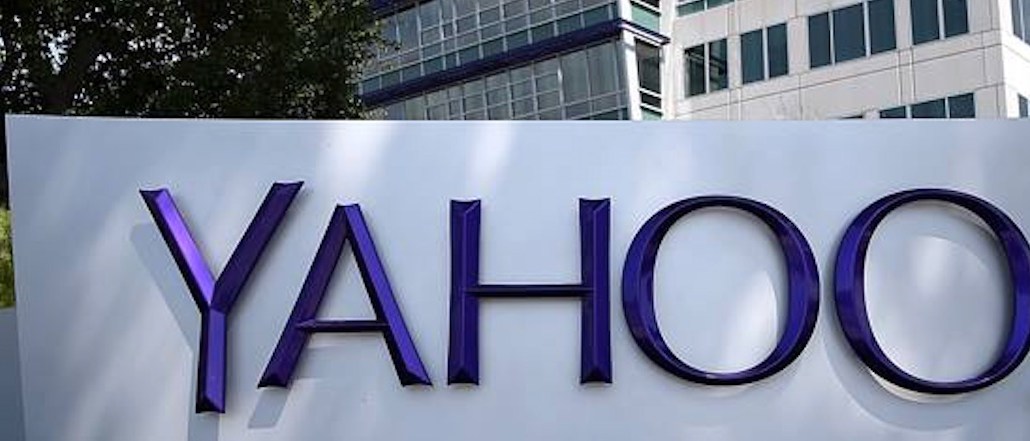Secure your place at the Digiday Publishing Summit in Vail, March 23-25

Yahoo has about 40 companies looking over its assets, seeing what it’s got that might be of any value for a sale that is all but inevitable at this point. The main frontrunner is Verizon, the company that has already bought AOL last June for $4.4 billion to give it a digital advertising and technology core.
Yahoo would be an attractive addition to that trophy case, as Verizon looks to build one of the only formidable counters to Facebook’s and Google’s advertising domination. All interested parties, including private equity firms, international bidders, and even other telecom companies like AT&T, have only a few more days to put up a proposal.
Here’s a look at how a Yahoo deal could affect the ad industry:
Cuts starting with the sales staff
Any already-established advertising company, like Verizon, could find savings in eliminating redundancies (a euphemism for mass layoffs). Robert Peck, an analyst at SunTrust Robinson Humphrey, thinks between sales and administrative staff, there’s 40 percent of Yahoo’s 9,000 employees that could go right away — an estimated $2 billion in value.
Ditch the failed ad tech
If Verizon were the ultimate buyer, it would have little need for most of Yahoo’s advertising technology. Verizon bought AOL for just that already: AOL’s newly developed cross-platform, programmatic ad infrastructure. “Verizon-AOL would likely keep and retain the AOL tech-stack, jettison the Yahoo stack but keep the Yahoo content and reach and better monetize that traffic,” said one digital ad executive, speaking on condition of anonymity because of close relationships with AOL and Yahoo. “AOL and [CEO] Tim Armstrong have a good reputation for monetization, whereas Yahoo has done a below-average job with this.”
Yahoo’s ad tech includes its homegrown native advertising product called Gemini, acquired video platform BrightRoll and Flurry, its mobile analytics arm. All of those constitute much of its programmatic infrastructure, which has been criticized recently for selling low-quality traffic. Still, Yahoo’s advances with native advertising — serving ads into online feeds — is still considered one of the stronger sides of the business. “Yahoo has bet huge into native and mobile,” the agency source said.
You shall find search
Search is where Yahoo would fill in a gap. Verizon right now is a search non-factor. Yahoo, meanwhile, does about $1.4 billion a year in search ad sales, although that’s in decline, according to eMarketer. “Verizon could become a player in search by stitching together searches on Yahoo, AOL and their owned and operated Verizon properties,” an agency executive said.
Mobile magic
Yahoo has some good-looking mobile properties — weather, finance, sports — that could complement what Verizon already is doing in mobile with its Go90 video service, content deals with the NFL and more. Also, what Yahoo lacks in its mobile ad business, Verizon could make up for with its growing presence. “Yahoo has about 600 million mobile active users, so that’s a pretty large audience that they’re bringing in, but at the same time they have issues with revenue declining,” said Martín Utreras, senior forecasting analyst at eMarketer.
Tumblr appeal?
For Yahoo, the Tumblr acquisition has not played out well. It cost more than $1 billion, and now it’s valued at about $240 million, according to SunTrust’s analysis. It also missed ad sales revenue projections and is now even considering plugging into Facebook’s ad network to drive more ads. Still, it comes with 400 million monthly users. “Everyone has to think about what to do with Tumblr. It’s still there, it has an audience, it’s growing, and there’s engagement there. It could be an asset,” Utreras said.
The price tag: $8 billion
Yahoo’s core advertising business is worth about $1.5 billion, according to SunTrust. The other pieces, like Tumblr, intellectual property, and revenue from deals with Yahoo Japan, raise the value closer to $6 billion. The ultimate price tag could cost a buyer like Verizon $8 billion, thanks to what appears to be plenty of interested buyers.
More in Media

How creator talent agencies are evolving into multi-platform operators
The legacy agency model is being re-built from the ground up to better serve the maturing creator economy – here’s what that looks like.

Why more brands are rethinking influencer marketing with gamified micro-creator programs
Brands like Urban Outfitters and American Eagle are embracing a new, micro-creator-focused approach to influencer marketing. Why now?

WTF is pay per ‘demonstrated’ value in AI content licensing?
Publishers and tech companies are developing a “pay by demonstrated value” model in AI content licensing that ties compensation to usage.





